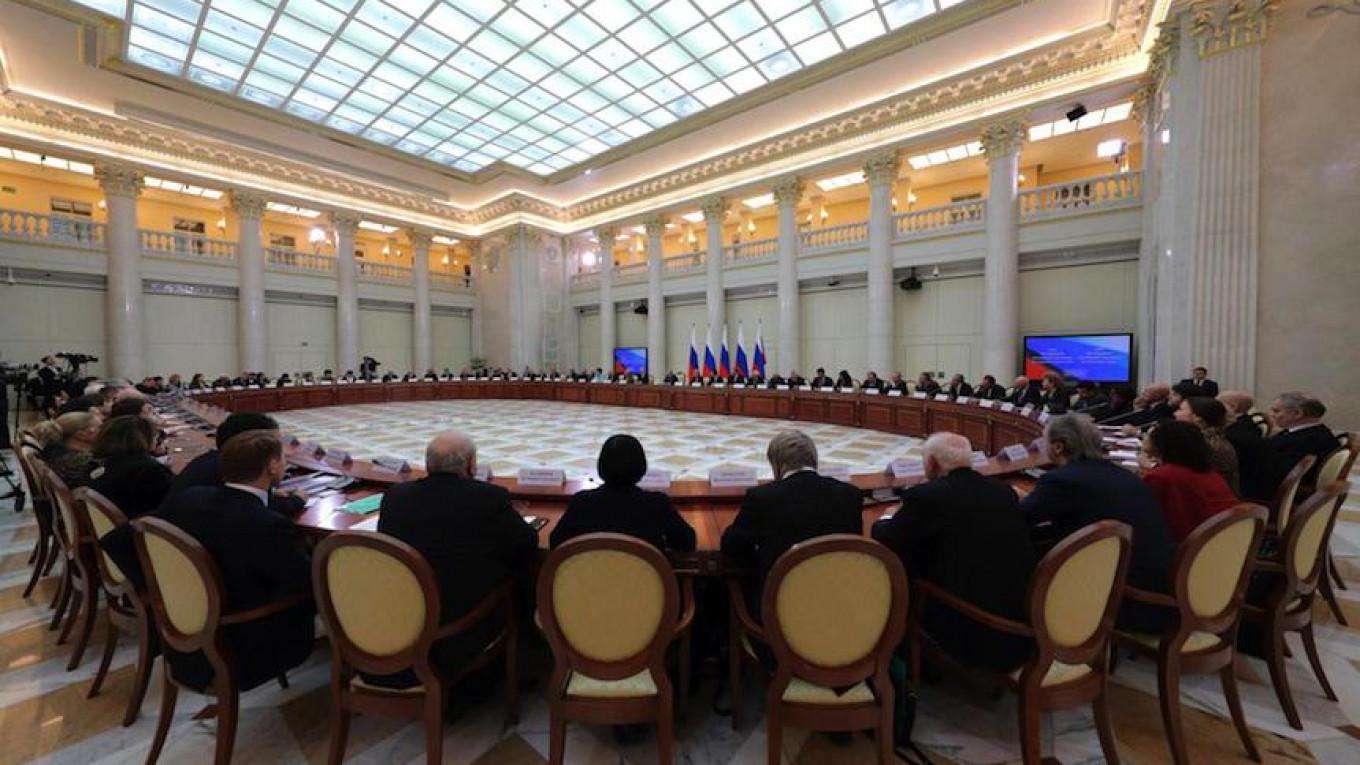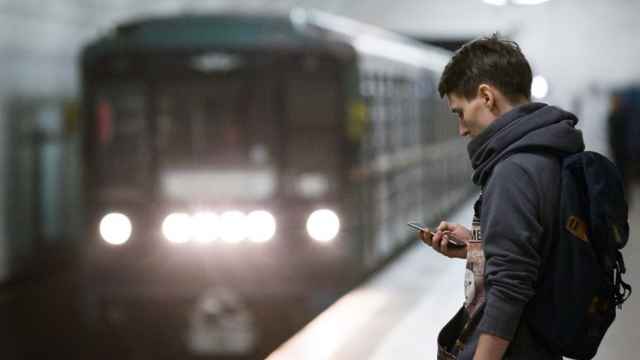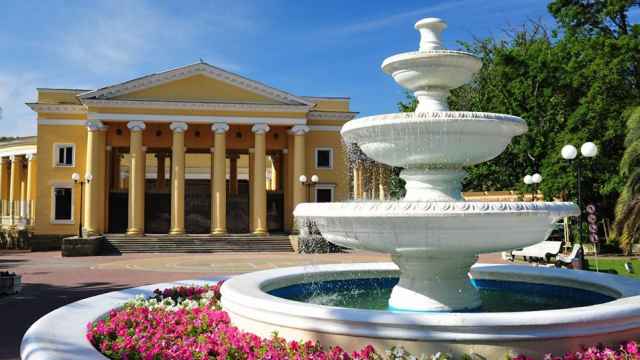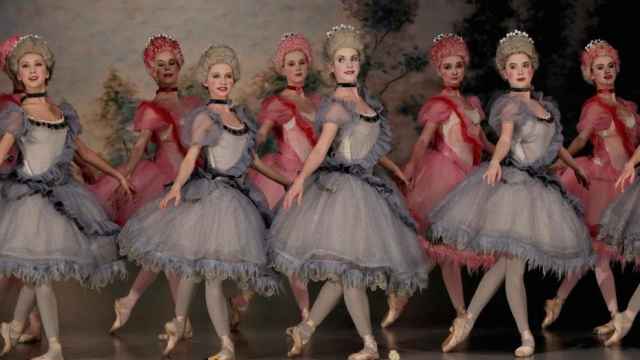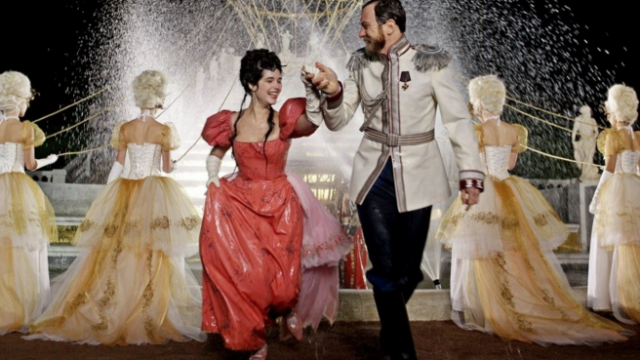Five years ago, President Vladimir Putin advised the Russian film community to adopt a code of ethics. “It is not about trying to impose a position, to force anyone to stick to some correct ideological format. I am talking about self-control and responsibility.” At a meeting last Friday with Russian cultural leaders, the President continued this line of thinking. “The creative community should determine the line between a cynical, insulting provocation and an act of creativity.”
This was Putin’s response to recent scandals over vague guidelines and unofficial decisions by government employees to ban various theatrical performances and concerts. In October, famed stage actor and director Konstantin Raikin publicly criticized the work of culture officials, and at Friday’s meeting with the President, the well-known actor Yevgeny Mironov expressed to Putin the arts community’s general concern about limits on creative freedom in Russia.
Putin easily manipulated the discussion with the cultural leaders. He instructed Culture Minister Vladimir Medinsky to deal with the specific case of a banned performance. “I am trying to sort this out, Mr. President,” he dutifully responded. After which, Putin repeated his standard line: “…The freedom to create should be inviolable. However, all freedoms have their alternate side – namely, responsibility.”
The President’s logic is simple, like any basic operation by a rank-and-file KGB operative: The state asks nothing of the artist, but if the artist offends someone’s feelings, well, that is a matter for the courts. And thank God for that. Just look at what happened with Charlie Hebdo in France. That’s what artistic freedom will get you! And there’s no point in taking offense with government officials. Sure, they can act rather foolishly at times, but they only want what’s best for the artists themselves.
Therefore, the arts community must independently develop certain criteria as to what is and is not permissible. And, of course, the government will continue to support major socially significant cultural projects, leading performance ensembles, and specialized educational institutions.
The existing relationship between the authorities and the creative community makes it easy for the President to think and speak this way. Artists must come crawling to the Culture Ministry for funding and they often receive the desired sum in cash – as if the authorities are doing them a personal favor.
This scheme enables the authorities to keep the creative community on a tight leash. True, the system requires officials to handle the distribution of funding, and not all of them are qualified to make judgments about the arts – but the main thing is that they are loyal to the Kremlin.
Ideally, the Culture Ministry should distribute the money between cultural institutions and let the professionals who run them decide how to use it. But, in Russia, the professionals are given a different task: devising a system of self-censorship.
A Message from The Moscow Times:
Dear readers,
We are facing unprecedented challenges. Russia's Prosecutor General's Office has designated The Moscow Times as an "undesirable" organization, criminalizing our work and putting our staff at risk of prosecution. This follows our earlier unjust labeling as a "foreign agent."
These actions are direct attempts to silence independent journalism in Russia. The authorities claim our work "discredits the decisions of the Russian leadership." We see things differently: we strive to provide accurate, unbiased reporting on Russia.
We, the journalists of The Moscow Times, refuse to be silenced. But to continue our work, we need your help.
Your support, no matter how small, makes a world of difference. If you can, please support us monthly starting from just $2. It's quick to set up, and every contribution makes a significant impact.
By supporting The Moscow Times, you're defending open, independent journalism in the face of repression. Thank you for standing with us.
Remind me later.


